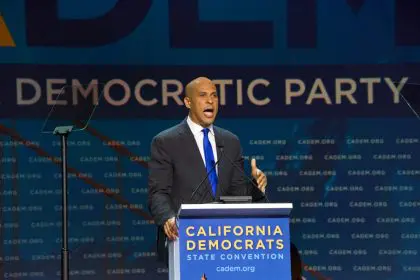In a significant move that has sparked widespread debate, President Donald Trump’s administration has taken steps to dismantle affirmative action in federal contracting and has ordered the suspension of diversity, equity, and inclusion (DEI) programs across federal agencies. This decision follows an executive order signed by Trump on his first day in office, which aims to eliminate various federal initiatives aimed at promoting diversity and inclusion.
Background on DEI programs
DEI programs were established to address systemic inequalities and promote a more inclusive workforce within the federal government, which employs approximately 2.4 million people. Under former President Joe Biden, agencies were mandated to develop diversity plans, report on progress, and contribute to a government-wide dashboard tracking demographic trends in hiring and promotions. However, Trump’s recent executive order revokes these initiatives, labeling them as discriminatory and advocating for a return to merit-based hiring practices.
Key changes implemented by the executive order
The executive order issued by Trump not only revokes policies established by President Lyndon Johnson but also curtails DEI programs by federal contractors and grant recipients. Here are some of the critical changes:
- Suspension of DEI staff: The Office of Personnel Management has directed federal agencies to place DEI staff on paid leave and eventually lay them off. All public DEI-focused webpages are to be taken down, and any DEI-related training is to be canceled.
- Review of federal programs: The order mandates a comprehensive review of federal contracts and grants to ensure compliance with the new anti-DEI stance, potentially affecting billions of dollars in federal spending.
- Reporting mechanism: Federal workers are instructed to report any DEI-related programs that may have been renamed to disguise their purpose, with threats of adverse consequences for non-compliance.
Impact on federal diversity initiatives
Trump’s executive order is poised to dismantle the progress made under Biden’s administration regarding diversity initiatives. The Biden administration had made strides in embedding DEI practices within federal agencies, including the establishment of a Chief Diversity Officers Council to oversee these efforts. The first DEI progress report released in 2022 revealed that the federal workforce was predominantly white and male, highlighting the need for continued efforts to promote diversity.
Trump’s order will eliminate equity plans developed by federal agencies and terminate roles dedicated to promoting diversity. This includes the cessation of DEI-related training and the removal of diversity goals from performance reviews.
‘Seismic shift’ for federal grant and benefits programs
The executive order also signals a shift in how federal grant and benefits programs will be administered. Conservative activists have long argued that these programs unfairly favor racial minorities and women. While the order does not specify which programs will be targeted, it calls for a government-wide review to align with the new anti-DEI perspective.
Dan Lennington, deputy counsel for the Wisconsin Institute for Law & Liberty, described the order as a “seismic shift” in federal policy. He noted that unwinding entrenched programs could be challenging, especially those that have been in place for decades.
Challenges ahead for implementation
Despite the sweeping nature of Trump’s executive order, experts caution that implementing such extensive changes will be complex. Federal agencies have established policies and procedures that cannot be easily altered. For instance, the Treasury Department administers housing assistance programs through block grants to states, which have their own diversity criteria.
Moreover, while Trump’s administration may seek to reverse initiatives stemming from Biden’s DEI executive order, it remains unclear whether all will be targeted. Some policies, such as the prohibition against asking applicants about salary history, have garnered bipartisan support and may prove more difficult to dismantle.
















